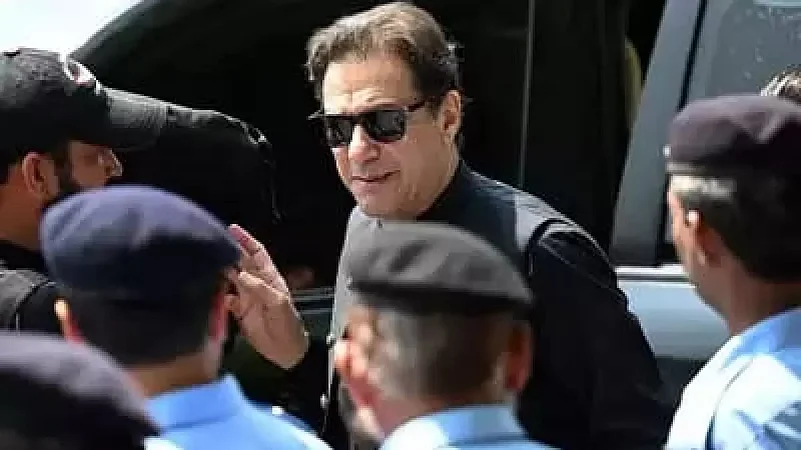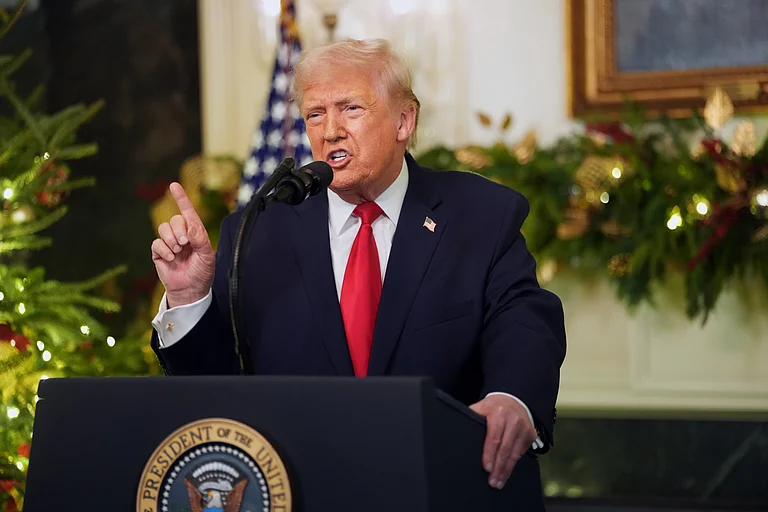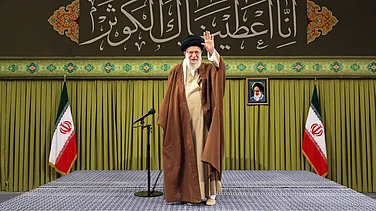Pakistan is preparing to elect representatives to the 16th National Assembly in the next general elections, which are set for February 8, 2024. This is the third consecutive civilian parliamentary election in the country of 241 million people, where no prime minister has served a full term.
With the history of military rule and dictatorship, a looming shadow of alleged military interference hangs over the 8 February vote. The country has a history of controversial elections, but this one stands out the most—with one former prime minister currently in prison and another returning from self-imposed exile with past criminal convictions swept away.
The two main parties in the running are the Pakistan Muslim League (N) (PML-N), led by former Prime Minister Nawaz Sharif, and the Pakistan Peoples Party (PPP), led by former Foreign Minister Bilawal Bhutto Zardari.
Pakistan Tehreek-e-Insaf, the largest party in the previous elections, is fielding its candidates as independents after a controversial Supreme Court ruling stripped them of their electoral symbol in the run-up to the elections.
Here are the major parties in Pakistan contesting the 2024 elections.
Pakistan Muslim League-Nawaz (PML-N)

The Pakistan Muslim League-Nawaz (PML-N), which secured 64 seats in the 2018 elections, is a centre-right political party in Pakistan. The party is led by former Prime Minister Nawaz Sharif.
Established in 1993, the PML-N, alongside the People's Party, held a dominant position in Pakistan's two-party political system.
However, the party faced a setback after the 1999 coup when its splinter faction, the Musharraf-backed Pakistan Muslim League (Quaid), overshadowed it for nearly a decade. In 2013, it returned to power, with Nawaz Sharif becoming the prime minister for an unprecedented third term.
The party encountered a setback in 2017 when Prime Minister Nawaz Sharif was disqualified. The situation worsened as Sharif and his daughter Maryam were sentenced to imprisonment on corruption charges, though their sentences were later suspended.
In the 2018 elections, the PML-N lost both the central and provincial government of its stronghold, Punjab, to Imran Khan’s PTI. As of 2022, it holds a prominent position in Parliament under the leadership of Nawaz Sharif's younger brother, Shehbaz Sharif. Despite facing challenges and a decline in popularity, the PML-N is anticipated to be a major participant in the upcoming 2024 general elections on February 8.
Pakistan Tehreek-e-Insaf (PTI)

The Pakistan Tehreek-e-Insaf (PTI), which won 116 seats in the 2018 elections, was founded by cricketer-turned-politician Imran Khan and is currently led by Gohar Ali Khan. Khan remains the most popular politician in the country based on independent polls.
The party leans more towards the centre-right and secured a victory in the 2018 elections.
However, in 2022, Khan faced a no-confidence vote in parliament, leading to his removal from office—the first instance of such an occurrence in Pakistan's history. The military, initially seen as supporting Khan, has changed its stance. Imran Khan, once considered the military's favourite, has been sentenced in three separate cases, with respective jail terms of 10, 14, and 7 years.
The PTI, stripped of its electoral symbol (the cricket bat), is now fielding candidates as independents.
While the popularity of the PTI founder is arguably at an all-time high, the legal challenges he and his party members are embroiled in have overshadowed everything else.
Pakistan People's Party (PPP)

The Pakistan People's Party (PPP) is a centre-left political party in Pakistan and currently holds the position of the second-largest party in the Senate. Led by Bilawal Bhutto Zardari and his father, Asif Ali Zardari, the party aims to return to power for the first time since 2008.
Founded by Bilawal's maternal grandfather and former Prime Minister Zulfikar Ali Bhutto, the PPP was initially led by his mother, two-time Prime Minister Benazir Bhutto.
Benazir’s tragic assassination in 2007 led to her son Bilawal’s joint leadership with his father Asif Ali Zardari. Once a dominant force, with victories in landmark elections — such as in 1970 and in 1988 after the end of another military dictatorship — the party’s fortunes have declined.
Bhutto Zardari stands out as a young leader in an even younger nation — the median age is 20 in a country otherwise dominated by men in their 70s.
Muttahida Qaumi Movement Pakistan (MQM-P)
The Muttahida Qaumi Movement Pakistan (MQM-P) is a social liberal, Muhajir nationalist, and secularist political party led by Khalid Maqbool Siddiqui.
In the past, the MQM-P formed alliances with national-leading parties. After the 2018 elections, it was in coalition with the PTI but switched its loyalties to the PDM after April 2022.
Following a fiery speech by its exiled leader Altaf Hussain in August 2016, the MQM-P broke into two factions: one in London and one in Pakistan.
The majority of its supporters are in Karachi and surrounding areas, which have huge populations of immigrants who fled the subcontinent after its division in 1947.
Tehreek-i-Labbaik Pakistan (TLP):
Tehreek-i-Labbaik Pakistan (TLP) is a far-right political party in Pakistan, founded by Khadim Hussain Rizvi in August 2015. The party is prominently represented by Saad Hussain Rizvi.
During the 2018 Pakistani general election, TLP emerged as the fifth-largest party in Pakistan, securing over 2.2 million votes. Although it did not win any seats in the National Assembly or the Punjab Assembly, it did manage to secure three seats in the Sindh Assembly.
TLP garners support primarily among Sunni Muslims of Barelvi affiliation, constituting the majority of Pakistan's Muslim population. Its supporters range from rural madrasa students to urban working professionals, particularly in Karachi.
Awami National Party (ANP):
The Awami National Party (ANP) is a Pashtun nationalist, secular, and leftist political party in Pakistan. Established by Abdul Wali Khan in 1986, the current president is Asfandyar Wali Khan.
However, in the last 2018 election, the party did not secure any seats in the National Assembly.
While it offers an alternative to people dissatisfied with the country's current political system, it only has three candidates running for National Assembly seats across the country, which limits its effect.
Jamaat-e-Islami (JI):

Jamaat-e-Islami (JI), led by Siraj ul Haq, is a right-wing party that won 12 seats in the 2018 elections as part of an alliance of religious parties. One of Pakistan's oldest political parties, it is well-known for its strong party organisation, yet it has performed poorly at the polls.
It has been out of power for decades, with its most recent major victory being in the 2002 elections under President Pervez Musharraf, the general who gained power in a coup.
Jamiat-e-Ulema Islam (JUI-F):

Jamiat-e-Ulema Islam (JUI-F), led by Fazal-ur-Rehman, is a right-wing party that secured 12 seats in the 2018 elections as part of an alliance of religious parties. The party aims to regain lost ground, particularly in Khyber Pakhtunkhwa province, which it lost to the PTI.
JUI-F is primarily concentrated in southern Khyber Pakhtunkhwa and northern Balochistan, regions predominantly inhabited by Pashtuns. It stands as the largest splinter group of the original JUI, which divided into two factions in 1980 over the policy of then-Pakistani President Zia-ul-Haq in supporting Mujahideen outfits during the Afghanistan war.
Fazal-ur-Rehman, the leader of JUI-F is looking to use his vast network of religious seminaries to help him win votes.





























